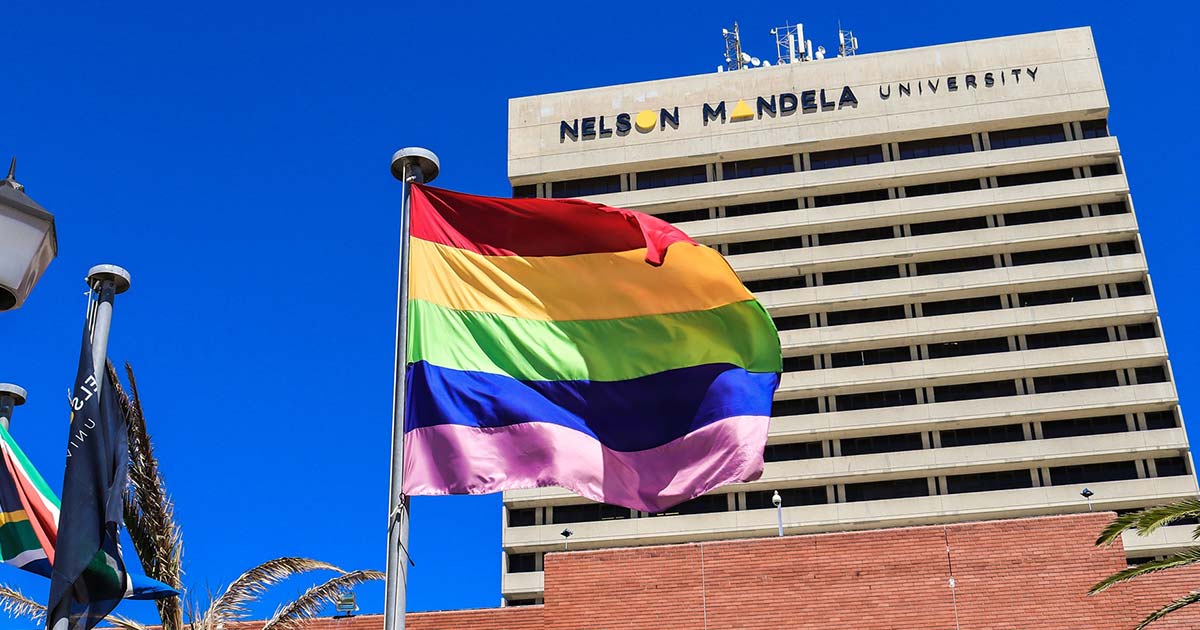Report Exposes Sexual Harassment in SA Universities, LGBTQIA+ Students at Heightened Risk

Nelson Mandela University in Gqeberha was one of three institutions highlighted in a new report addressing sexual harassment in higher education. (Photo: Nelson Mandela University / Facebook)
The Commission for Gender Equality (CGE) has released a troubling report detailing the persistence of sexual harassment (SH) in South Africa’s higher education institutions (HEIs).
The study, conducted at Nelson Mandela University, North-West University, and Sol Plaatje University, paints a concerning picture of harassment, insufficient policies, and institutional failures to protect students—particularly those from LGBTQIA+ communities.
LGBTQIA+ Students Face Unique Challenges
The report foregrounds the significant challenges faced by LGBTQIA+ students, who experience not only sexual harassment but also harassment related to their sexuality and gender identity.
Focus group discussions (FGDs) at Nelson Mandela University revealed alarming incidents where student leaders allegedly demanded sexual favours from LGBTQIA+ students in exchange for accommodation—a form of quid pro quo harassment.
Compounding these issues is a lack of understanding among campus security personnel, who often dismiss cases involving same-sex couples, perpetuating harmful stereotypes that harassment in these relationships is either not serious or impossible.
“They don’t take us serious, especially the lesbian community, as they believe we are both girls—why would we fight?” shared one LGBTQIA+ participant.
Participants across the institutions also highlighted a lack of awareness of SH policies, gender-sensitive reporting mechanisms, and inclusive education. A common thread was the perception that existing policies are framed through a binary lens of men-versus-women violence, excluding the lived realities of LGBTQIA+ students and others outside the cisheteronormative spectrum.
Systemic Failures Across Institutions
The findings underscore systemic failures across all three universities. At Nelson Mandela University, student leaders wielding power over accommodation assignments were implicated in the abuse of power for sexual favours. North-West University and Sol Plaatje University revealed gaps in policy communication, enforcement, and education, leaving students unclear on how to report SH and whether their cases would be taken seriously.
Substance abuse, societal norms, and patriarchal systems were also identified as contributing factors to SH. Despite these systemic issues, university staff often lacked the necessary training to differentiate between SH and other forms of sexual violence, further weakening institutional responses.
Recommendations for Change
The CGE report provides a clear call to action for universities to prioritise the safety and well-being of all students. Key recommendations include:
Policy Overhaul: Institutions must develop and implement clear, inclusive, and victim-centred SH policies that address the unique needs of LGBTQIA+ students.
Education and Awareness: Universities should conduct widespread education campaigns on SH, gender diversity, and inclusive reporting mechanisms, starting from first-year orientation.
Strengthening Reporting Mechanisms: Accessible, confidential, and responsive reporting systems are essential to encourage students to come forward.
Tackling Toxic Masculinity: Addressing harmful gender stereotypes and fostering a culture of equality is critical.
Data Collection and Research: Regular, disaggregated data on SH incidents, including LGBTQIA+ experiences, should be collected to better inform policies and interventions.
LGBTQIA+ Inclusion: A Crucial Imperative
The silence around LGBTQIA+ experiences in SH policies and prevention measures remains a significant gap. The report emphasises the importance of inclusive frameworks that recognise and address the unique vulnerabilities of LGBTQIA+ individuals.
“In expressing an understanding of SH and GBV broadly, there was a consistent default reference to gender binaries (men/women). There was silence on gender diversity and thus invisibilisation of the transgender and gender-diverse community,” said the commission.
The CGE report is a stark reminder that universities have a fundamental responsibility to provide safe and supportive environments for all students. Institutional leaders must hold themselves accountable for fostering cultures of respect and zero tolerance toward SH.
For LGBTQIA+ students, the findings serve as both a rallying cry and a roadmap for advocacy to ensure their voices are heard and their safety prioritised.
Leave a Reply